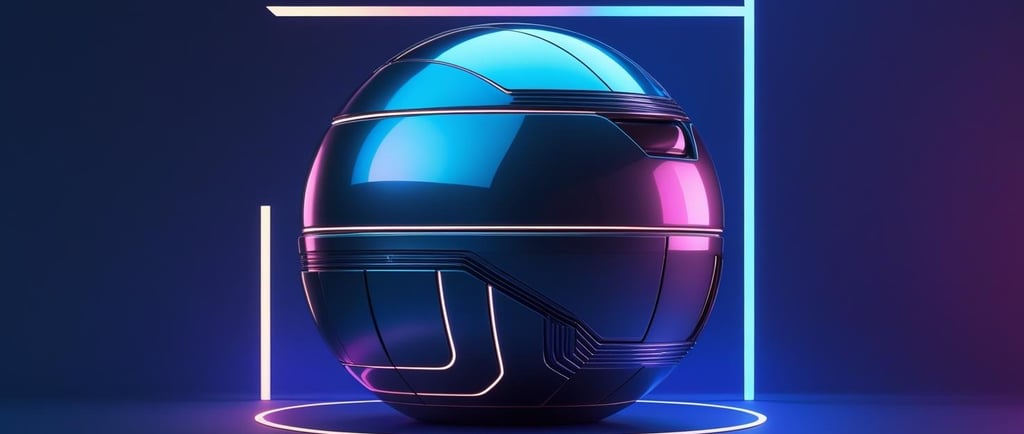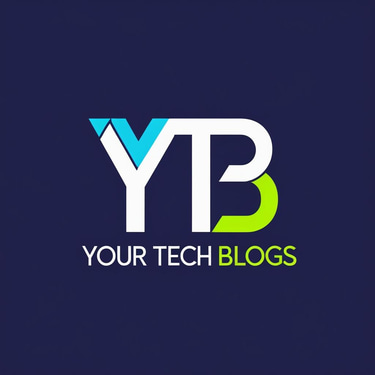How AI Is Revolutionizing Everyday Technology in 2025
Artificial Intelligence (AI) is no longer science fiction. Discover how AI is changing daily life in 2025—from smart homes to personalized healthcare and business automation.
we-tech
7/27/20252 min read


Introduction
In 2025, Artificial Intelligence (AI) is no longer just a futuristic concept—it's an everyday reality. From your smartphone to your fridge, AI is seamlessly integrated into our lives, improving convenience, safety, and productivity. But how exactly is AI changing the way we live, work, and interact?
In this article, we’ll explore how AI is impacting smart homes, personal assistants, healthcare, education, and business, and what it means for our future.
🔌 1. Smart Homes Are Smarter Than Ever
Remember when smart homes were about just turning off lights with your phone? That’s old news now. With advanced AI, smart home systems like Google Nest and Amazon Alexa don’t just respond—they predict.
Predictive Heating: AI learns your routine and adjusts heating/cooling automatically.
Voice Recognition: Home assistants can now distinguish voices, giving personalized answers.
Security Cameras: AI-driven CCTV systems detect unusual behavior, not just motion.
🧠 2. AI Personal Assistants Are Your New Life Managers
Digital assistants powered by AI have evolved beyond basic tasks.
Scheduling & Planning: Tools like Apple’s Siri or Google Assistant now manage complex schedules based on preferences and historical data.
Email Summarization: AI filters and summarizes daily emails.
Health Monitoring: Smartwatches now alert you before you even realize you’re sick.
Internal Link Idea: How to Set Up Google Assistant for Daily Productivity
❤️ 3. AI in Healthcare: From Diagnosis to Treatment
One of the most important applications of AI in 2025 is healthcare.
Early Detection: AI systems now analyze imaging reports and detect diseases like cancer with over 95% accuracy.
Virtual Health Assistants: Chatbots answer medical questions 24/7.
Remote Surgeries: Some surgeons are already performing operations via robotic arms guided by AI.
External Link: Read how Mayo Clinic is using AI for early cancer detection
💼 4. Business and AI: A Perfect Match
Whether it’s a small startup or a Fortune 500 company, businesses rely on AI more than ever:
Customer Service: AI chatbots handle 70% of customer queries.
Marketing: Tools like ChatGPT help generate personalized ad copy.
Inventory & Supply Chains: AI forecasts demand and reduces wastage.
Pro Tip: Businesses that adopted AI early saw a 35% boost in efficiency.
🎓 5. AI in Education: Personalized Learning for Every Student
AI has entered classrooms too—both virtual and physical.
Learning Platforms: Apps like Khan Academy and Duolingo use AI to tailor learning paths.
Essay Grading: AI tools assist teachers by auto-evaluating written content.
Special Needs Support: AI-powered speech and text tools help students with learning disabilities.
📈 Future of AI: What’s Next?
In the next five years, we can expect:
AI to become more emotionally intelligent (EQ-AI).
AI-generated content to dominate online platforms.
Governments to create stricter AI ethics laws and frameworks.
✅ Key Takeaways
Area AI Use in 2025
Smart Homes Predictive settings, facial recognition
Healthcare Early disease detection, virtual assistants
Education Personalized content, speech tools
Business Chatbots, data automation
📌 Final Thoughts
Artificial Intelligence is no longer a buzzword—it's the technology shaping our world in real time. While there are still challenges (like data privacy and AI bias), its benefits in daily life are undeniable.
If you're not using AI in 2025, you're already behind.
